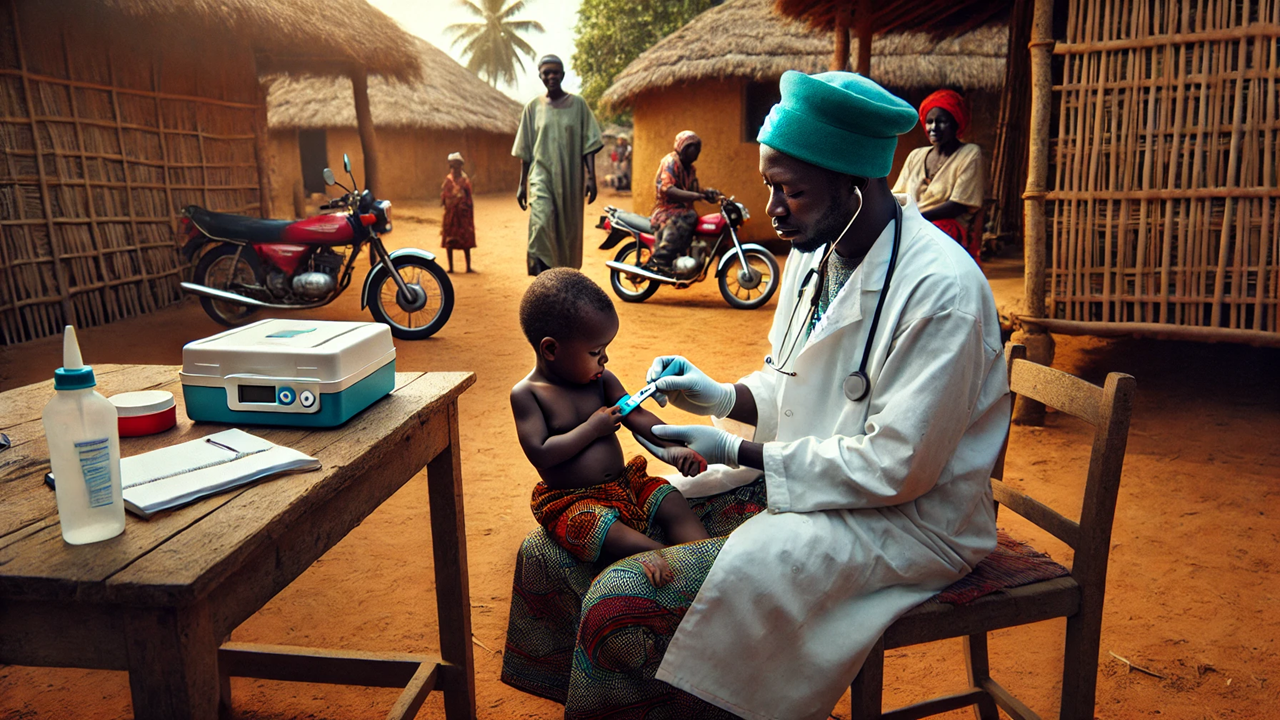Africa’s Health Leaders Call for Urgent Action to Avert Malaria “Perfect Storm”
Climate change and extreme weather are shifting malaria transmission patterns, while humanitarian crises across the continent are heightening vulnerability.

- Country:
- Zambia
African Ministers of Health, global partners, and health leaders have sounded the alarm on malaria, warning that the continent faces a “perfect storm” of challenges that threaten to undo decades of progress in combating the disease. The call was made on the sidelines of the Seventy-Fifth WHO Regional Committee for Africa (RC75), where ministers and partners pledged to intensify political leadership, accountability, and financing for malaria elimination.
Africa Still Bears the Global Burden
The WHO African Region continues to shoulder more than 95% of the global malaria burden, despite progress made over the past two decades, including a 16% reduction in incidence between 2000 and 2023. But mounting challenges—ranging from shrinking budgets and drug resistance to invasive mosquito species—are placing immense pressure on health systems.
Climate change and extreme weather are shifting malaria transmission patterns, while humanitarian crises across the continent are heightening vulnerability. Added to this, funding cuts from traditional donors have left many malaria programmes under-resourced, sparking fears that gains made in reducing cases and deaths could be reversed.
“Malaria is at the frontline of Africa’s health security. We must respond with agility to emerging threats and overcome this perfect storm, otherwise we risk reversing hard-won progress,” said Dr Mohamed Yakub Janabi, WHO Regional Director for Africa.
The Financing Gap
One of the biggest obstacles to eliminating malaria remains financing. According to Dr Michael Adekunle Charles, CEO of the RBM Partnership to End Malaria, current resources cover less than half of what is needed globally.
“To accelerate malaria elimination, we must close the funding gap through bold domestic investment and continued global support. Malaria financing saves lives, strengthens health systems, and enhances Africa’s readiness to confront future pandemics,” Charles said.
Ministerial Champions and Accountability
A highlight of the ministerial discussions was the launch of the Malaria Ministerial Champions commitments and the Champions’ Accountability Scorecard. These initiatives aim to:
-
Empower Ministers of Health to champion malaria elimination through political leadership.
-
Mobilise resources and foster cross-border collaboration.
-
Scale up innovations in malaria prevention and treatment.
-
Track progress through a unified scorecard to promote transparency and accountability.
“Malaria is more than a health issue, it is a development challenge. Through the Ministerial Champions Initiative, we are mobilising action, strengthening accountability, and ensuring malaria remains at the top of Africa’s development agenda,” said Joy Phumaphi, Executive Secretary of the African Leaders Malaria Alliance (ALMA).
Phumaphi confirmed that 10 Ministers of Health had already been appointed as Champions earlier this year, with more leaders joining during RC75, reflecting growing political momentum.
Voices of Commitment from African Leaders
Hon. Lawrence Ookediste, Assistant Minister of Health of Botswana, stressed the importance of collective action:
“As champions, our role is to open political space, mobilise resources, break silos, and embed malaria into national and regional development agendas. I am pleased that we now have a Ministerial Malaria Champions Accountability Scorecard to track commitments with clarity, accountability, and the full weight of political leadership.”
Similarly, Hon. Dr Elijah Muchima, Minister of Health of Zambia and Chair of RC75, highlighted Zambia’s proactive approach. Through its End Malaria Council, Zambia has mobilised resources from both the public and private sector to sustain vector control, procure essential commodities, and support community health workers.
Initiatives such as the Buy a Bicycle campaign have equipped over 18,600 community health workers (CHWs) with bicycles, enabling them to reach remote rural communities. “Ending malaria must be a priority that we own and fund beyond the support we receive from global partners,” Muchima said, calling for continued replenishment of the Global Fund.
Malaria as a Development Challenge
Speakers at the meeting agreed that malaria is not only a public health emergency but also a developmental issue that undermines economic growth, productivity, and social progress. Tackling the disease requires a coordinated response that combines domestic leadership, sustainable financing, and regional cooperation.
A Renewed Commitment
In closing, health leaders pledged to act decisively to rally political will, strengthen accountability, and secure financing to confront the malaria crisis. Their shared goal: to protect Africa’s hard-won gains and reignite momentum toward malaria elimination.










